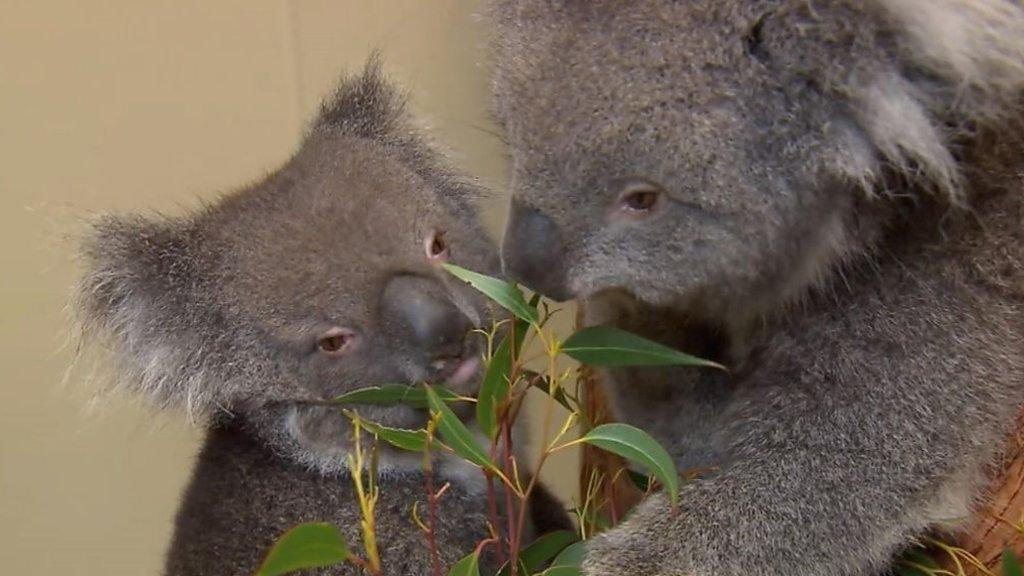Longleat koalas aid disease research breakthrough
- Published
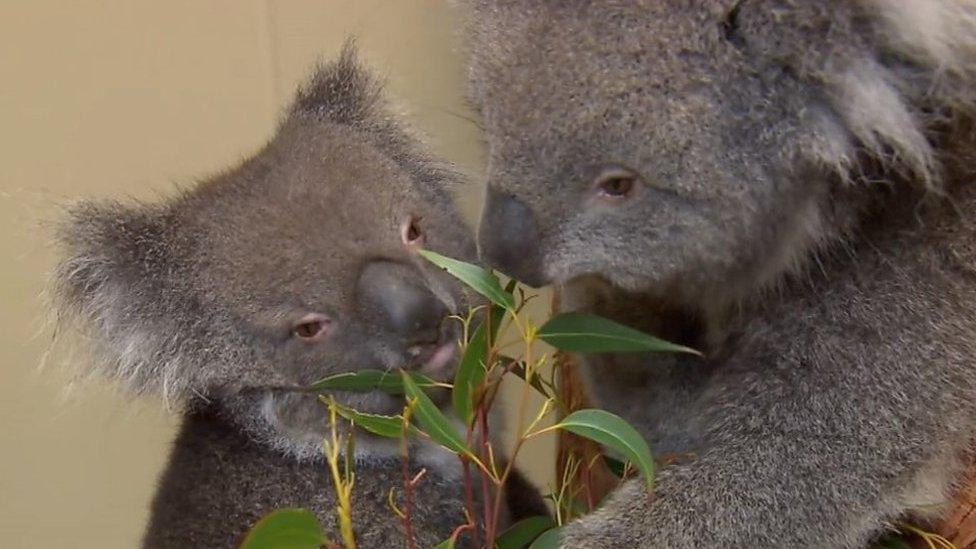
Five koalas arrived at Longleat from Australia last year as part of a conservation programme
Koalas at Longleat Safari Park could hold the key to securing the long-term survival of the vulnerable species.
Koala numbers are decreasing rapidly due to a combination of disease and habitat loss.
Five southern koalas were sent to the Wiltshire park from Australia as part of a conservation programme, but one died after developing kidney disease.
Scientists studying them say they have identified a genetic mutation and a retrovirus present in the species.
It has been estimated there are now fewer than 100,000 koalas in their native Australia.
Up to a third of southern koalas suffer from a form of kidney disease, while northern koalas numbers have been hit by cancers and a form of HIV.
Scientists studying the Longleat Koalas believe they have identified a genetic mutation and a retrovirus present in the southern koala population.
One of Longleat's koalas, a female called Wilpena, died earlier this year as a result of the kidney disease oxalate nephrosis.
Dr Rachael Tarlinton said: "While Wilpena's death was extremely sad, it does look as though the genetic information she has provided us with could provide vital clues to help save the population in the wild.
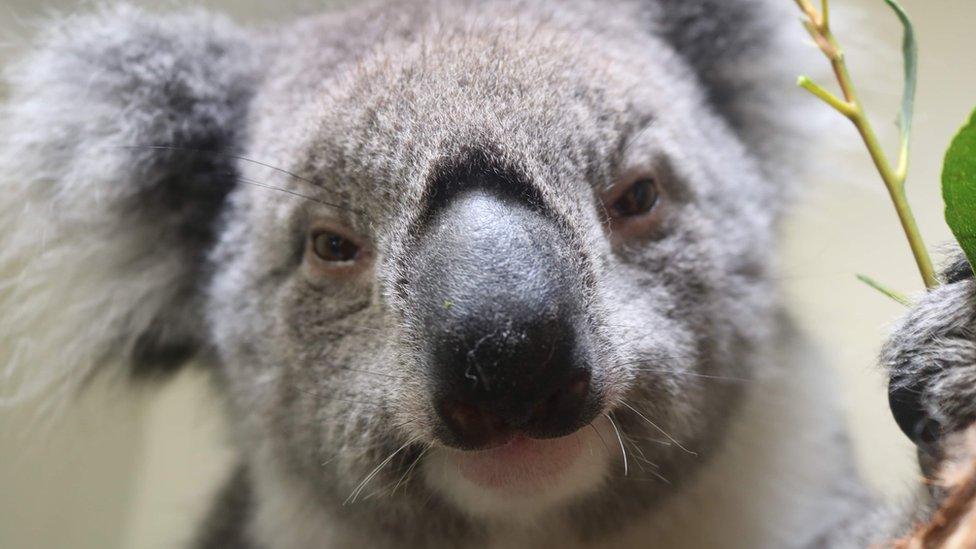
One of Longleat's southern koalas, Wilpena, died as a result of the kidney disease oxalate nephrosis
"Koalas only live in Australia and only eat eucalyptus leaves so the maintenance of natural habitat and disease resistance are vital to the future of this most popular of species."
Dr Tarlinton and her team believe they have identified a retrovirus within the southern population that helps protect them from the diseases which have affected the northern koalas.
"This has the potential to be a genuine scientific breakthrough which will allow us to design tests which could have taken us years to develop without the information gained from Wilpena," she said.
The team is hopeful the new information will help to develop cross-breeding programmes to eradicate the genetic mutation which causes kidney disease and to spread the retrovirus which helps protect against the cancers and HIV.
Graeme Dick, from Longleat, said: "Dr Tarlinton's work is incredibly exciting and if it can help to protect and safeguard populations in the wild, it will be a real game-changer and also mean Wilpena's legacy will live on."
- Published28 March 2019
- Published9 January 2019
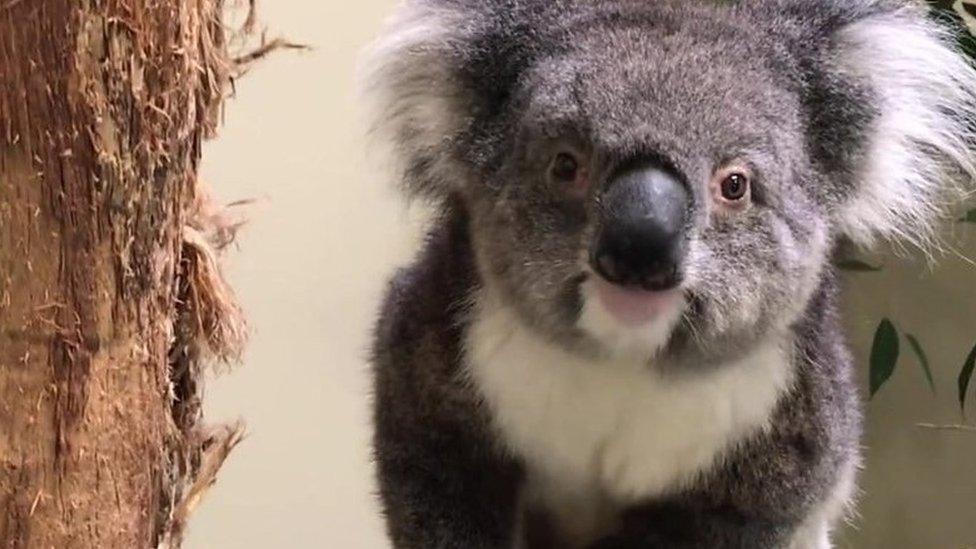
- Published12 October 2018
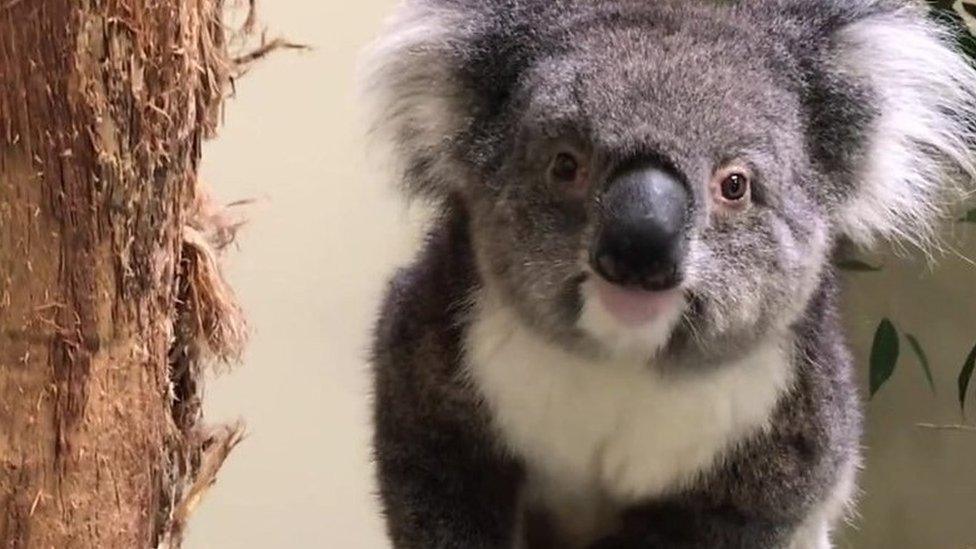
- Published15 July 2018
